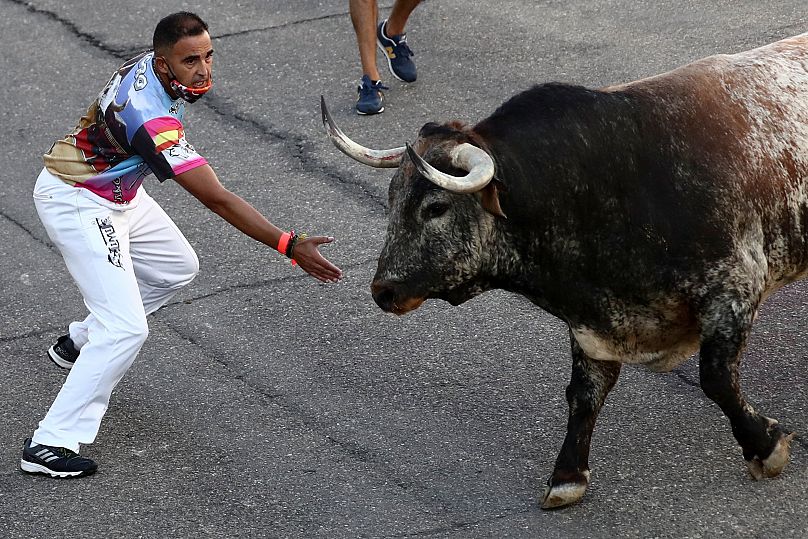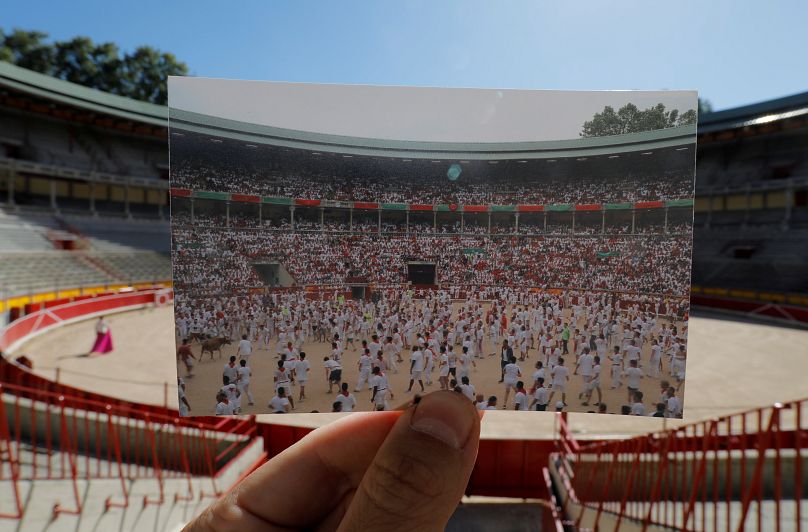The death is the first fatality in Spain's bull-running events this year. Generational divides rage on about whether the events should remain part of Spanish tradition.
A man bled to death from his injuries after he was gored at a bull-running festival in Onda, eastern Spain.
 ADVERTISEMENT
ADVERTISEMENT
 ADVERTISEMENT
ADVERTISEMENT
It was the first such fatality in the country since such events resumed after COVID-19 curbs were relaxed during the summer.
The 55-year-old man, who has not been named, was repeatedly attacked by the bull at the festival in Onda, the town's council said on Saturday.
He suffered a wound that perforated an artery in his thigh and bled to death from his injuries.
Other participants tried to entice the animal away but their efforts failed.
What is bull-running and why is it dangerous?
Traditional Spanish bull-running events involve large groups of people running away from six bulls that have been let loose in cordoned off streets. Up to ten are used in more recent summer events.
A rocket is launched to drive the animals into a frantic state and they are each accompanied by a steer responsible for their movements.
The average duration of a bull run is 2 minutes 30 seconds and the herds are known to reach speeds of 24 km/h.
Spain's largest bull-running event takes place in Pamplona during the Festival of San Fermín, a nine-day event celebrating history and traditions. Fifteen people have died from goring injuries since records were first kept in 1910.
Raised awareness over the dangers of the run has led to the festival deploying hundreds of medical staff at various points in the run.
Declining support for the tradition
A public debate over whether bull-running festivals should be abolished has become more heated in recent years, and only a small number have taken place since Spain's COVID-19 restrictions were lifted.
Bullfighting and bull-running are their own individual cultural practices, but people oppose them for very similar reasons - concerns over safety and animal welfare.
The animals let loose for the runs are generally used in bullfights later on the same day.
Animal rights charity PETA describes the practice as a "death march".
A 2020 poll found 46.7 per cent of Spaniards were in favour of banning bullfighting while 18.6 per cent believed it should be preserved.
The Spanish government recently excluded bullfighting from the €400 culture voucher available to teens in order to kickstart museums, concerts, and sporting events after two years of fragmented attendance.
Onda Council cancelled all bull-running planned at the town's festival, which will end on Sunday. Other activities were not affected.












